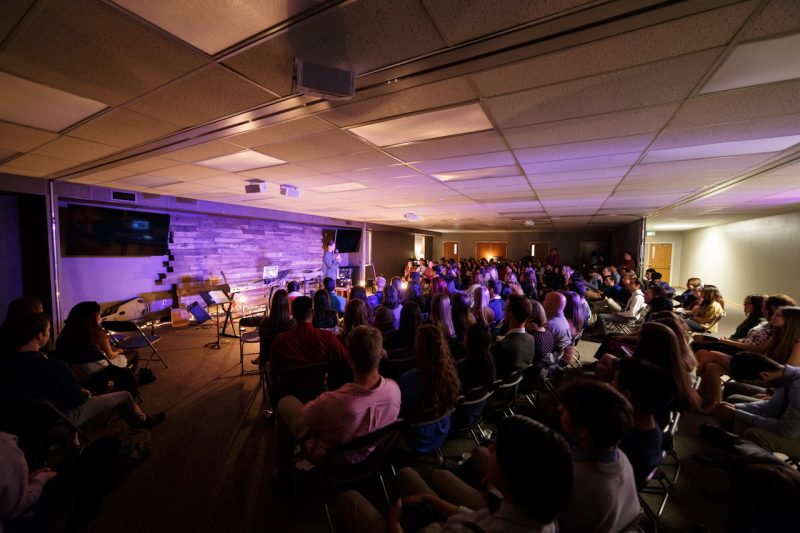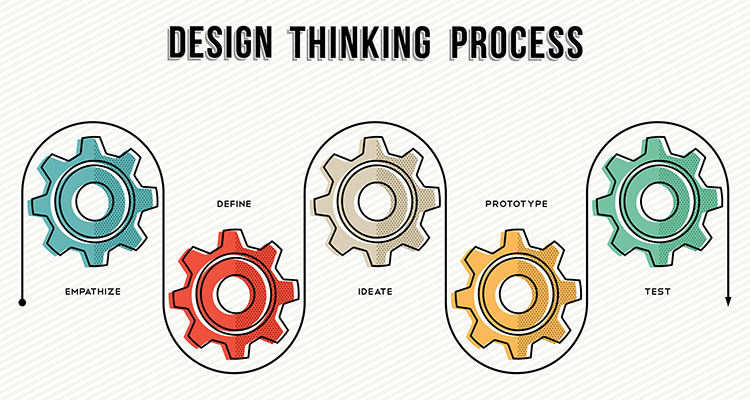The End of Bid Work?
By Anthony Coppedge
There are entire industries that revolve around bid work. RFPs (request for proposals), submittals, revised bids, bid scope documents and bid contracts are all a part of this ecosystem and the A/V/L manufacturers, integrators and contractors are all well-familiar with the hassle of the bid.
Bid work is not my favorite because it almost always lacks relational selling. It’s not that I haven’t won some significant bids during my A/V/L sales career, but I distinctly recall the anti-climatic feeling that came from a the signed purchase order on a bid project. It seemed to me that winning five-, six- and even seven-figure bids should have felt better to me. It didn’t because our team simply met an artificial budget cap generally set by someone that didn’t understand our scope of work intimately.
Bids, Contracts and Covenants
Look, I realize that bids are here to stay. It’s a reality in the house of worship market, too, but I’ve seen a trend slowly gain traction over the last decade where churches are going through the bid processes without ever really wanting to evaluate all submissions. The reason is simple: They very often want to be in a covenant relationship with a person (not just the vendor) who understands them, listens and has their best interests at heart.
In the church world, you’ll here this term ‘covenant’ from time to time. It’s based on God’s covenant (binding promise) with His people found both in the Old Testament and New Testament of the Bible. The general idea here is that a covenant represents more than a contractual obligation, but a promise of your character to be faithful to your word and their character being faithful to their word, too.
In the context of our discussion today, this simply means they (church representatives) often desire for you as a person, not just a representative of your organization, to build a relationship that is mutually beneficial. The church wants and needs your expertise; you can benefit from not only the purchase order and project, but the favor of the church to come to you time and again for additional work while also sharing your name/brand with their other church friends.
It’s pretty rare that a church would use the word ‘covenant’ in a contract document, but if you want to ever get past pure bid work in the House of Worship market, you’ll need to recognize the underlying desire to be in a long-term relationship of many church leaders.
There Are Bids, And Then There Are Bids
The trend I’m sharing with you isn’t about the end of all bid work, nor the antiquating of bids. Instead, there’s a growing reality in which churches find a person (who works for a vendor) that they build a trusting relationship with so that the bids become less and less important — possibly to the point of obsolescence.
It may be that the first time that your salesperson works with a church, the bid process is fairly typical: The church has a need and wants at least three bids on the project. This is the stereotypical bid that is based as much on price as it is on crossing every ‘t’ and dotting every ‘i’. However, once the church learns of the character of their salesperson/account manager and the integrity of the vendor in meeting (or even exceeding) expectations, the next bid project has a good chance of being less of an archetypal RFP and more of a formality to ensure the budgets aren’t out of whack.
So, there are bids, and then there are bids. The company that’s given their account manager the freedom to build the relationship over time will more likely find this trend working to their advantage as a preferred vendor.
The Bid Threshold
Another term you’ll often hear in the house of worship market is stewardship. Essentially, church leaders are tasked with making sure that time, energy and money are used effectively and efficiently, plus they desire to be good stewards (those put in charge of something that belongs to someone else). Good stewardship has less to do with how much is saved and more to do with how much isn’t wasted. As such, vendors have the opportunity to not only speak this language, but offer churches unique buying arrangements that reassures the church the price point is fair (market value) and that your company will be responsive in taking care of any issues. As mentioned above, this is referred to as a preferred vendor relationship.
I surveyed churches informally and found that a common threshold for making purchases without a bid process is generally around $5,000 and less. Over time, however, as the relationship matures and credibility is established, this dollar amount can increase to make it easier for the church to make necessary updates without the arduous task of creating an RFP. As an example, one church technical director said it this way: “We always get a counter bid on higher ticket items, but ultimately price isn’t always the selling point. This is especially true if some type of install is required or potential upgrades are needed.”
When projects are large enough to go to bid, these preferred vendors are less concerned about low bids and are more concerned about addressing the proposed scope of work within the context of the established relationship. Sure, a bid will most likely happen, but it’s more to ensure the ‘gut check’ that your proposed solution and prices are not out of whack with the rest of the competition.
Firms that do not take more than a financial interest in bottom-dollar sales to the House of Worship market will find themselves losing bids (which they’re probably doing anyway) and saying it’s unfair that your firm is consistently performing well in the church market. This isn’t the government, health care or military market. More and more, vendors that put consistent effort into the House of Worship vertical and focus on building advantageous agreements in place via relational selling will find the repeat business and positive word-of-mouth creating the kind of consistency — and margins — that regularly beat the bid market mentality.
The End of Bid Work?
In a recent column, I talked about the rapid growth of multi-site churches as being a trend that manufacturers and integrators alike needed to understand. Of all church clients, those have a multi-site DNA are probably the ultimate example of the ideal client for building a preferred vendor relationship with, as they’ll have more needs far more often than the typical church. Here, the chance to build the relationship is easier, faster and creates more revenue (with higher margins, too). They’ll probably still have bids for new campuses or campus-wide upgrades, but they’ll also look to their preferred vendor to set the standard.
The reality is that creating marketing campaigns, specialized buying programs and even extending beyond sales into the rental and service areas for the House of Worship market will help establish these preferred vendor relationships. Quality is key when quantity is the race to the bottom – and that’s a race you don’t want to win.
Will bid work ever come to end in the church vertical? Nah. But will A/V/L vendors find better margins, better opportunities and better word-of-mouth referrals by providing churches with better-than-bid successes? Absolutely.
A former staff member at three mega churches and church technology consultant, Anthony Coppedge has developed a respected reputation as a leader in technical and communications circles within the church marketplace. Reach him at anthony@anthonycoppedge.com or on Twitter athttp://www.twitter.com/anthonycoppedge
This column originally appeared in this month’s rAVe HOW [House of Worship]. To subscribe for free, click here.






